Teens don’t have to choose between learning and having a summer job, thanks to Northeastern program
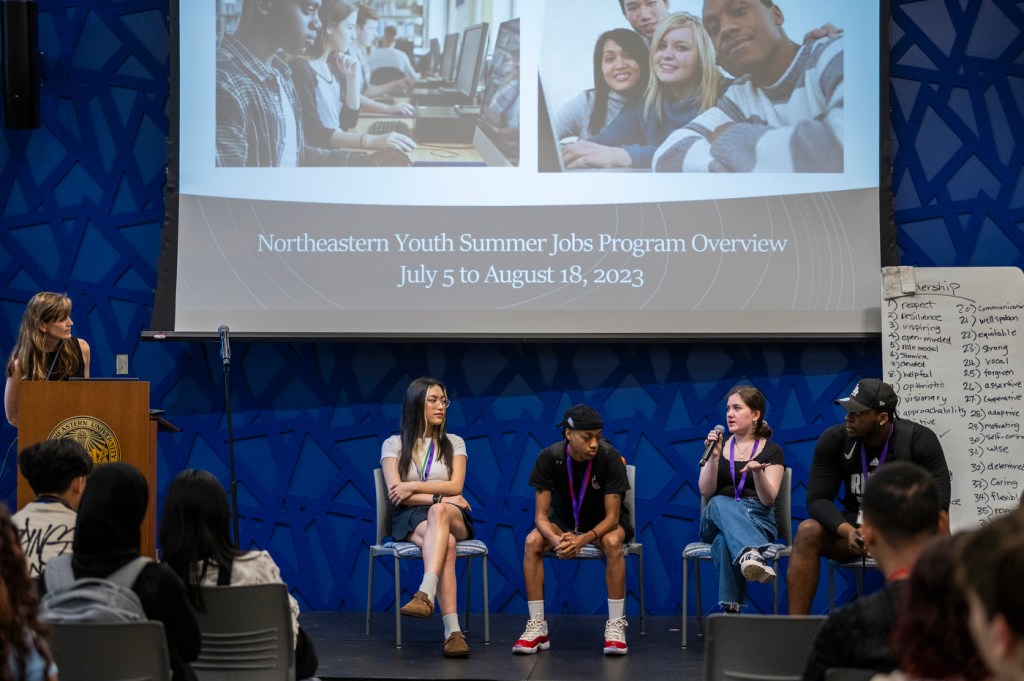
It seems too good to be true—getting paid to take calculus.
But that’s reality for a group of Boston students this summer.
“You’re not only getting experience with the math course you’re taking next year, you’re getting paid for it,” Daniel Imasuen, 17, says. “It’s really nice.”
The class is called Bridge to Calculus and empowers young people from underserved communities to succeed in advanced math classes. It is part of Northeastern University’s Summer Youth Employment Program, a partnership with the SuccessLinks Youth Jobs program of the city of Boston and its Learn and Earn program.
The effort is part of an initiative by Mayor Michelle Wu to invest an unprecedented $18.7 million in support of 7,000 youth jobs. Five thousand of those opportunities are being generated in partnership with community organizations and nonprofits, including Northeastern.
The collaboration will bring 130 Boston youth ages 14 to 18 on campus for six weeks this summer.
Eighty-five or so of the participants are Boston Public Schools students who will be part of the Bridge to Calculus program—a longstanding program at Northeastern, but a program that has never before offered to pay students to participate.
“It’s so kids don’t have to choose between a learning experience and having a job during the summer,” says Alicia Modestino, an associate professor of public policy and urban affairs and economics, and the research director of the Dukakis Center for Urban and Regional Policy.
Another 50 participants will be working among 25 departments across the university—ranging from athletics administration to the Ethics Institute and from the chancellor’s office to Student Life.
Finally, five youth leaders from the city ages 19 to 24 will be mentoring and helping the participants.
Another 10 jobs will be available at Mills College at Northeastern in Oakland, California—a program that may be extended in future years to other locations in Northeastern’s global campus network.
All Boston participants were on campus this week for orientation, which included financial literacy training, a leadership training class and more.
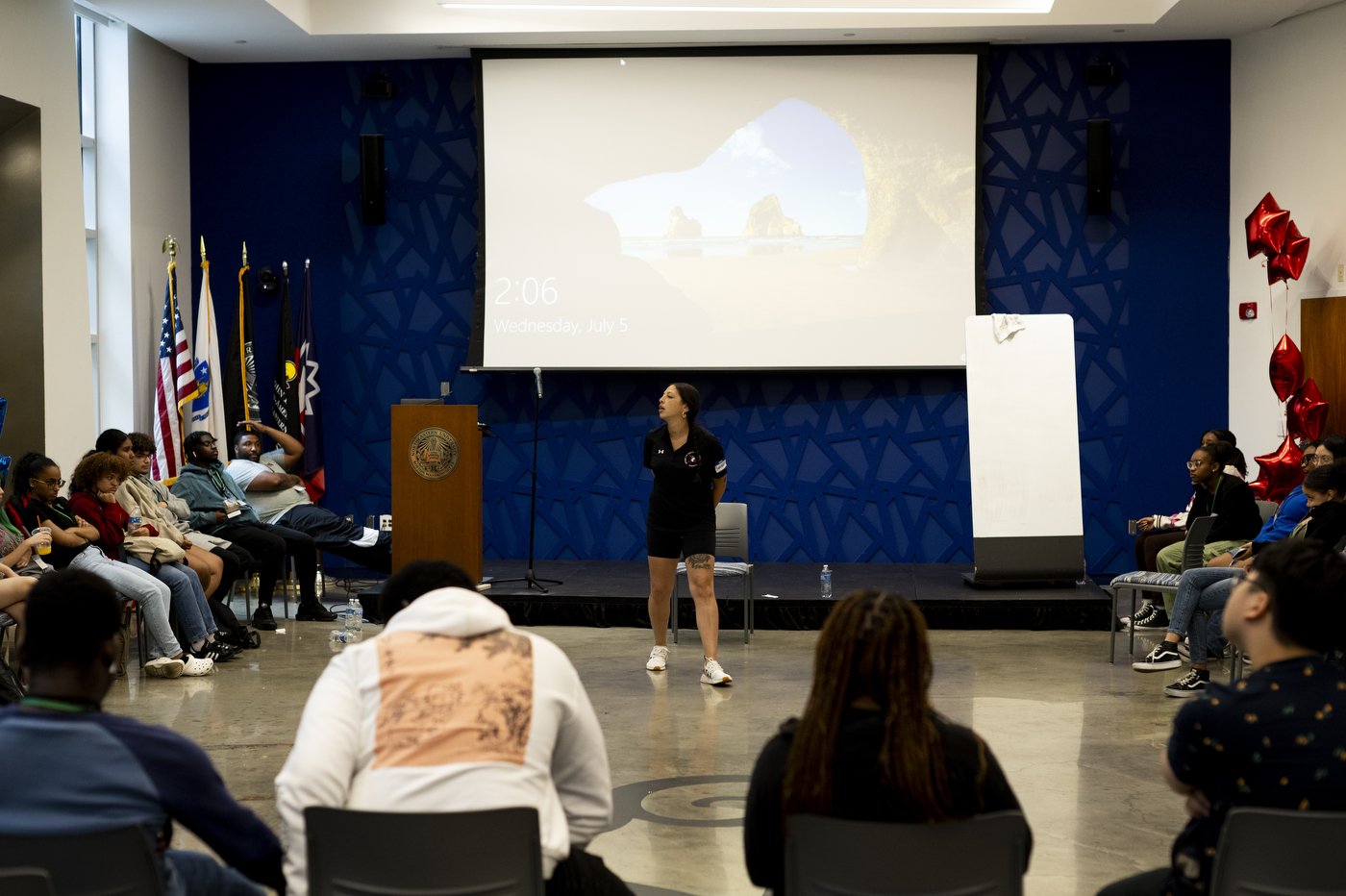
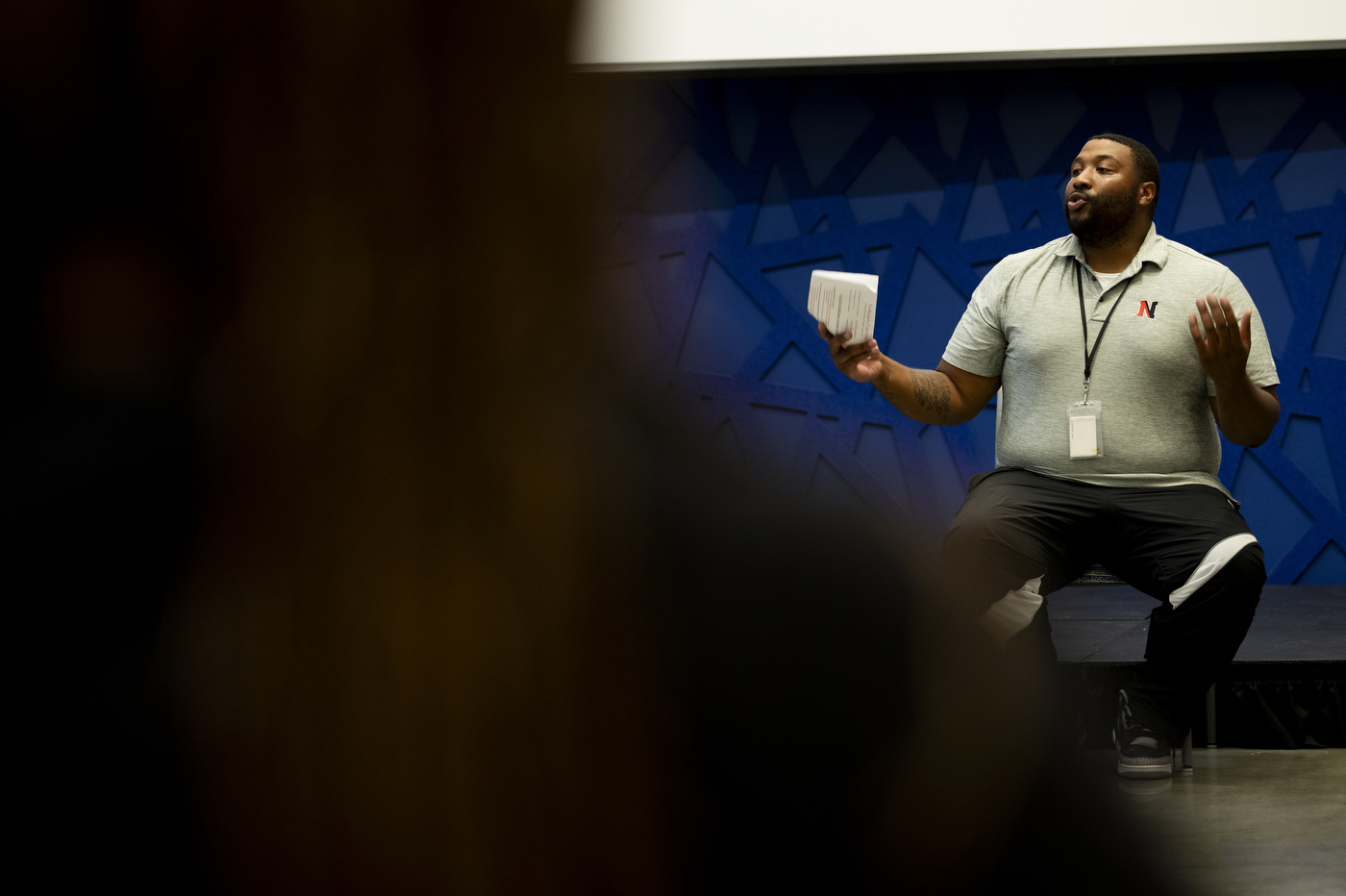
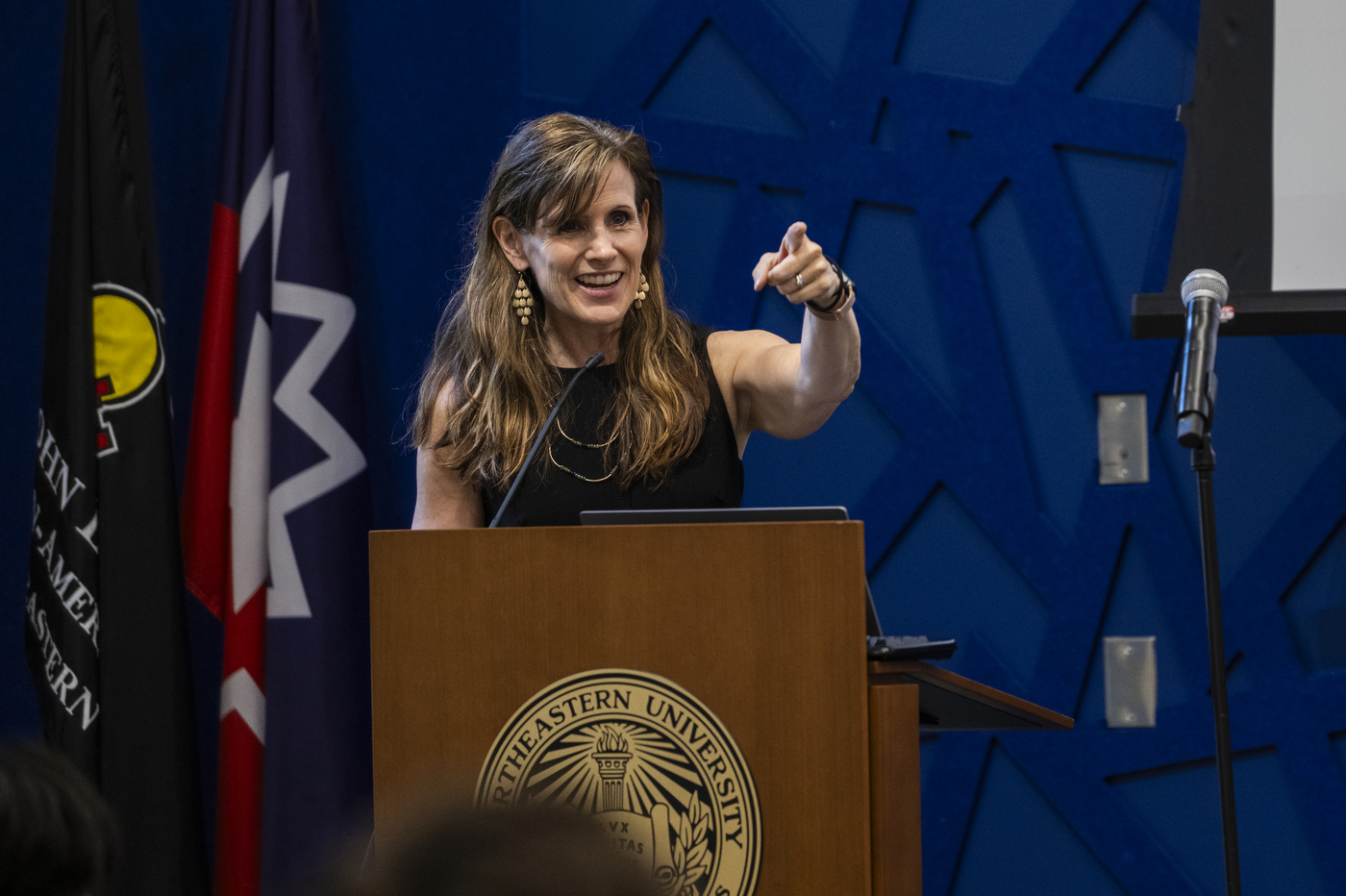
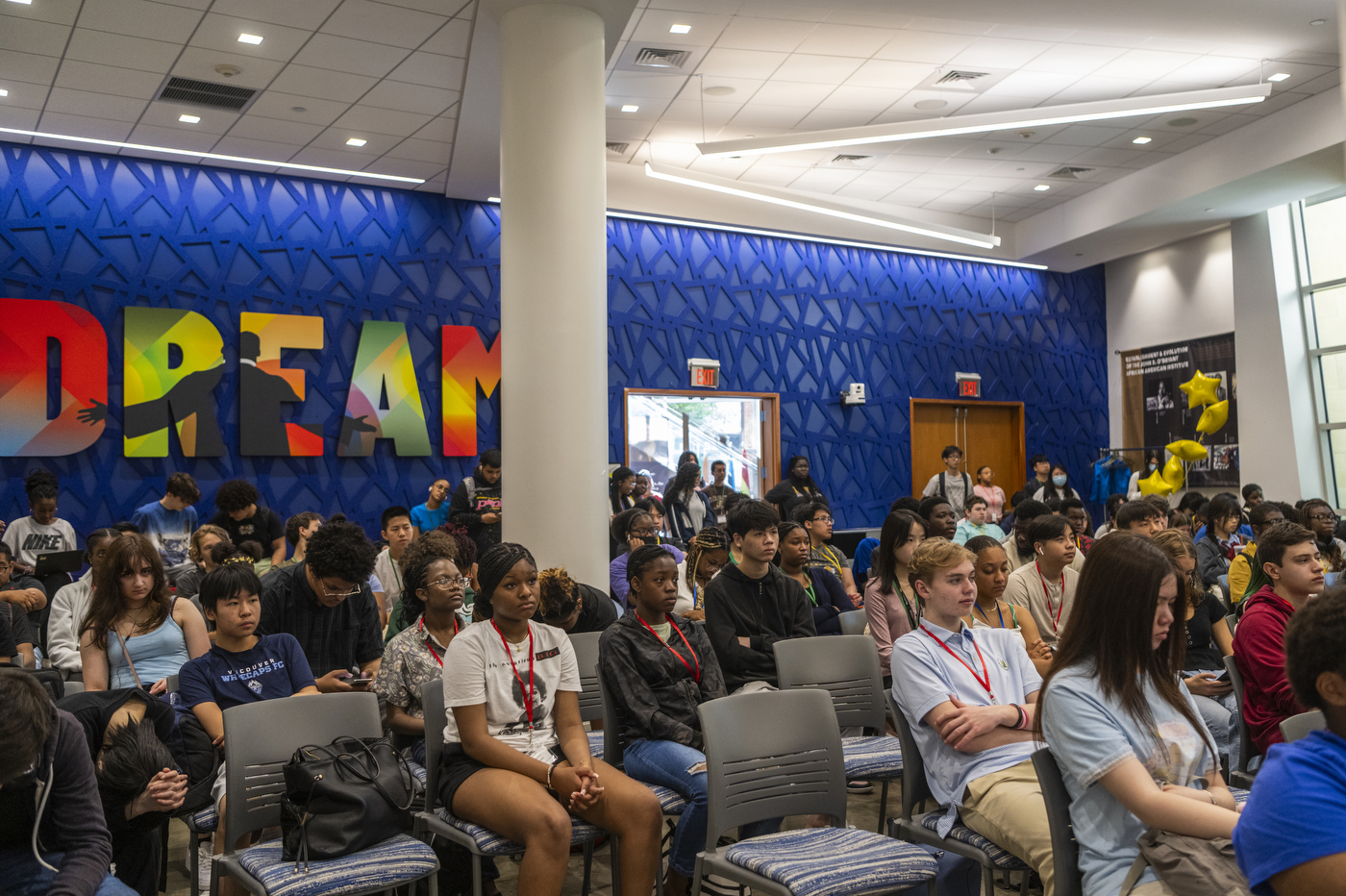
“It gets them in a place where they can exercise those professional skills you can’t always get at a first job,” says Lynn Sanders, regional director for the Community to Community (C2C) Impact Accelerator. “It’s important because early employment experiences are really important to get kids on the right track.”
Indeed. Eight years ago, Northeastern started as a research partner with the city’s summer youth employment program, and has been studying the effects of the program since. The data show that the program reduces violent crime in the city by 30% and, among the participants, increases high school graduation by 5% and boosts employment and wages for young people within one to four years after participating.
Modestino says the reductions in violent crime can be attributed to improvements in participants’ soft skills, for example: learning to manage your emotions, resolving conflict with a peer, gaining a mentor, and asking adults for help. The participants also learn how to write a resume, interview, work as a team and develop references that are crucial for job applications.
As for getting paid to take calculus, the research shows that half of the young people who participate in the program use the money they earn to pay some kind of household bill. In response, Northeastern is building on that idea to pay students to learn.
The program has the additional benefit of exposing participants to a college campus, both as a place to learn and as a place to work.
“I hope that they see Northeastern as a place they want to be in general and have stronger connections here, and think about careers in higher ed and/or have higher education aspirations in general,” Sanders says. “I hope these kids can see how they can be assets in careers in ways they might not have thought of before.”
The participants were excited for the program.
You’re not only getting experience with the math course you’re taking next year, you’re getting paid for it.
Daniel Imasuen, a participant in Northeastern’s Summer Youth Employment Program
Youth leader and Dorchester resident Michael Powell, 21, is studying economics at the University of Rhode Island. He sees the program as an opportunity to work in a program that helps inner-city students.
“I want to work in a college system helping students with their loans and their applications,” Powell said.
Charlotte Erwin and Thaliana Whittaker Price are working with the athletic department’s marketing and sales teams to increase attendance and revenue and enhance the game-day experience.
Charlotte, 14, said her older brothers participated in the program, and she saw it as a way to combine her love of sports with experience in an office setting.
“My life revolves around sports,” the volleyball and lacrosse player from Jamaica Plain says. “I like how sports can bring people together as a community—it bonds them.”
Thaliana, 16, says that she wanted to build on past office experience to develop marketing skills.
“I want to get into business when I’m older and getting to know how to market for different things will be very good for me,” says Thaliana, a cheerleader and swimmer from Roxbury.
Tory Boyle, assistant athletic director, gameday marketing and innovation and a supervisor for Erwin and Whittaker Price, meanwhile, says that participating in the program was a “no-brainer.”
“We wanted them to join us,” Boyle said. “It’s a good experience for them, and a good experience for us.”
Cyrus Moulton is a Northeastern Global News reporter. Email him at c.moulton@northeastern.edu. Follow him on Twitter @MoultonCyrus.






